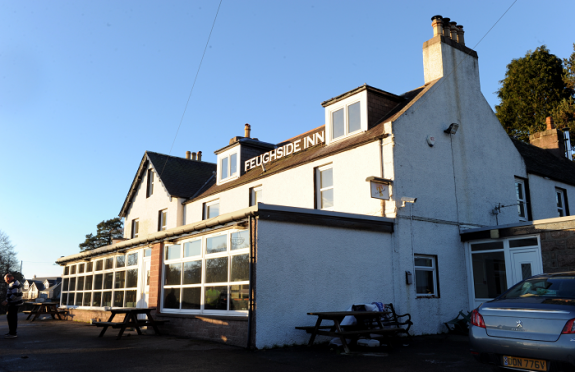A popular Deeside tourist spot is being forced to close its bar and restaurant due to controversial business rates rises.
The Feughside Inn, in Banchory, will become a guest house next month after its rates soared by 50% from April 1.
The facility’s owners, Donald and Catherine Callander, have said they risk going out of business if they continue to operate anything more than a B&B on the site.
Last night, Mrs Callander explained it was a disappointing but necessary move.
She said: “We have definitely been forced into this. Thankfully, our daughter (Kelly) is an accountant, who started looking at our finances in January and she told us we can’t afford to keep the bar and restaurant open.
“The only way we can save our business is by going to bed and breakfast only, it’s hard enough to run a business without this coming out of the blue.”
Under the new rates, the Callanders have gone from paying £17,500 a year, including council tax, to £23,000 a year with the tax included.
The increased rates also mean they no longer qualify for funding from the small businesses scheme.
However, if they reopen as the Feughside Guest House, this will drastically reduce their bills and allow them to continue trading.
Their announcement comes days after it emerged many businesses were still waiting to receive Scottish Government relief because of administrative issues.
Finance Secretary Derek Mackay told the region’s hospitality and office sectors in February their rises would be capped at 12.5% as he faced a furious backlash from angry bosses over steep increases.
But, even now, many councils – including Aberdeenshire – are still trying to get the correct software in place for calculating the relief after being left with little time to act once the government had passed its legislation.
A Scottish Government spokesman said: “We have committed around £660million of business rates relief this year, including around £37million support specifically for hospitality firms to ensure rates bills rise by no more than 12.5%.
“The detail of this relief has been known since mid-March and is up to local authorities to administer. We have supported councils to process applications and reflect the relief in final rates bills.”
